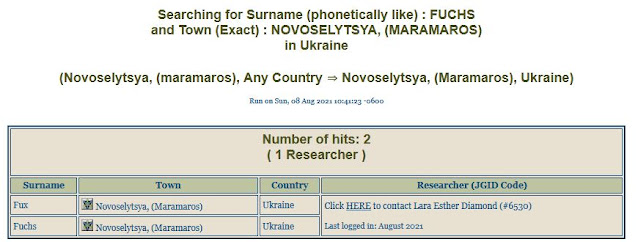Many Jews moved to Odesa in the nineteenth century--including Jews from quite a distance away from Odesa itself. Jews came to Odesa not only from all over the Russian Empire, but also from Austria-Hungary (including many from Galicia), Romania and the Ottoman Empire. That means that even if you have no known ancestry from Odesa, it's quite possible that you have other branches of your family that moved there. And these days it's easier than ever to find these branches.
 |
| Birth of Yosef Sanshuck, Odesa, 1916--his father was registered in Krasne, now Krasnoye, Ukraine |







